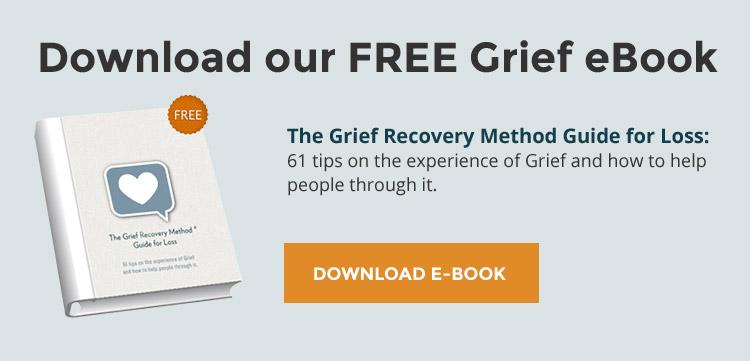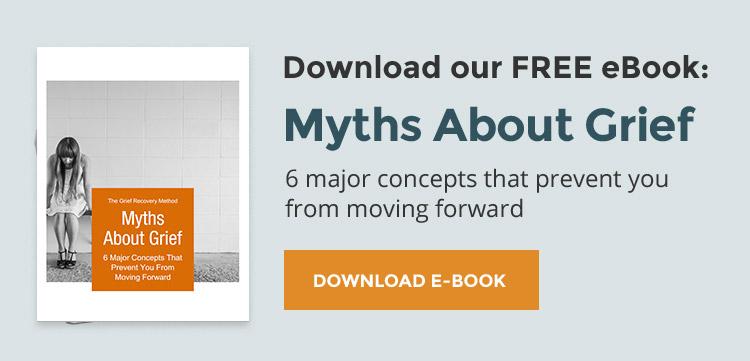What we believe usually dictates how we feel. Our attitudes about people and events will generate our emotional responses to them. We all think our beliefs are always right, otherwise we would believe something else. Since we have practiced our beliefs over a lifetime, we are very loyal to them.
It is very common to get stuck on our rightness and lose sight of our real human objective which is to be happy. Many people believe that being right IS being happy. Most of us eventually learn that our rightness may be limiting or restricting our happiness. Our rightness about effective recovery from significant emotional losses often limits our ability to complete relationships that have ended or changed. Many of the ideas and beliefs that we were taught about dealing with our losses are incorrect and unhelpful, but after practicing them for a lifetime, they can seem to be very RIGHT.

For example, we were all taught that time heals all wounds. But time does not complete anything that is emotionally incomplete in our relationship with someone who died. If we believe, with tremendous rightness, that time is going to heal our emotional wound, we are destined to wait forever.
Time does not heal. Time goes by. It is the actions that you take within time that can help you grieve and complete relationships that have ended or changed. It is essential to take a new position of rightness about which actions are most helpful to achieve effective long-term grief recovery.
Another example of a belief that you may have learned and practiced is keeping busy. As a response to the conflicting feelings caused by loss, keeping busy can be a dangerous short-term distraction. At the end of a busy day your heart is still broken, and the relationship may still be incomplete. Keep-busy does not complete relationships. People are often as right about keeping busy as they are about time healing wounds.
In our article, on Familiarity, we said, "Familiar is not necessarily good, it is only familiar." By the same token, Right is not necessarily good, it is only right. We tend to develop a ferocious loyalty to our rightness even though it often leads us to horrible squabbles with our mates and friends. If you think about most of the fights you've had, you will realize that both sides clung fiercely to the rightness of their position. Even in the aftermath, either party may have stayed on a position of rightness and refused to apologize, and thereby extended the fray.
It may be time for you to examine some of your beliefs and attitudes about recovery from significant emotional loss. How you process the conflicting feelings caused by loss is dictated by what you believe. You must ensure that you have effective beliefs that can lead you towards happiness, rather than stuck in rightness.
If you found this articule useful, you may also want to look at these blog articles:
It's Said Time Heals All Wounds - Grief Myths Part 4
Or please visit our Grief Blog and search for other topics related to grief. You can also subscribe to our blog to keep up to date on new articles as they come out.



























Comments
Brian Thomas
I had an Idea that my relationship was on the rocks and the woman I lost was seeing a therapist so I started doing research in general and I knew I would end up being removed especially since self awareness was part of the therapy, so I purchased the grief book and I started therapy myself about the same time so the book made all the difference in the world and it has been about a month since the relationship has ended, and I am doing better but I never know how or what I am going to feel. So if you think a significant storm is brewing face the inevitable read the book and you will be ready to face the pain that lies ahead and it is imperative that you face grief and meet it head to head because it's your life and pain is a part of it. I now have every intention of helping people in our church to deal with crisises of this magnitude.
Add new comment